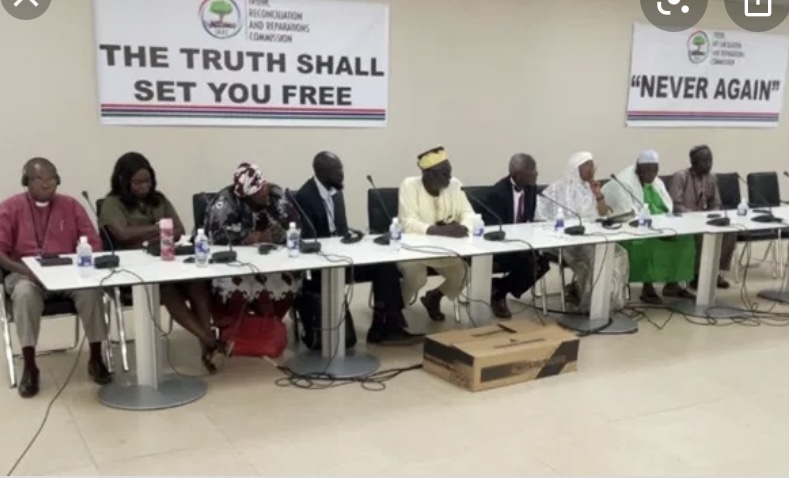Basidia M Drammeh
 The extraordinary session of the Truth, Reconciliation and Reparations Commission (TRRC) on Friday, May 28th, 2021, served as the climax of the Commission’s public hearing that lingered on for 872 days. It was an emotionally charged day for Gambians, including myself, taking stock of what took place in our country for 22 days and coming to terms with the gross human violations committed in a country that has branded itself as the “Smiling Coast of Africa.” The tiny country, instead, bled in silence. Tears rolled down my cheek as I listened to Lead Counsel Essa Faal make his powerful closing argument.
The extraordinary session of the Truth, Reconciliation and Reparations Commission (TRRC) on Friday, May 28th, 2021, served as the climax of the Commission’s public hearing that lingered on for 872 days. It was an emotionally charged day for Gambians, including myself, taking stock of what took place in our country for 22 days and coming to terms with the gross human violations committed in a country that has branded itself as the “Smiling Coast of Africa.” The tiny country, instead, bled in silence. Tears rolled down my cheek as I listened to Lead Counsel Essa Faal make his powerful closing argument.
At least 392 witnesses appeared before the commission availing Gambians of an opportunity to hear horrendous and harrowing accounts of agonizing ordeals of torture, unlawful detentions, extrajudicial killings and forceful disappearances, among other violations that dwarfed and ultimately obliterated Jammeh’s achievements. Many testimonies have drawn tears of pain and agony by both the witnesses and the bewildered spectators.
Due to his infatuation with power and paranoia, Jammeh set out to hunt down his perceived and real enemies perpetrating gross human rights violations against the very people he swore to serve and protect. In the last public hearing of TRRC, the witness, Saikou Jallow, revealed that the former tyrant, who once vowed to rule for one billion years, wrote a list containing about 40 names by his hand. Jammeh passed the names to a marabout to help him kill, or muzzle or cripple them spiritually. The Commission went on to call the document “the spiritual hit list.” This suggests that the former leader went above and beyond to cling to power, even if that meant eliminating his adversaries. In the process, nobody was spared, including his blood relatives, close friends and associates, religious leaders, intellectuals, students, journalists, military personnel, women and the elderly.
Jammeh could not have done what it has without the collaboration of enablers from members of society and state institutions. The judiciary, the security apparatus, particularly the National Intelligence Agency were essential instruments for Jammeh to pursue, maim, humiliate, shame, persecute and prosecute his rivals.
TRRC has phenomenally carried out its mandate, unearthing the truth, de-mystifying the despot and unravelling the prevailing perception that Gambians are harmless, with many previously arguing that the atrocities meted out to Gambians were perpetrated by non-Gambian mercenaries only to find out that the culprits are their own brothers, sons, cousins, friends and neighbours. TRCC’s Chairman, Lamin Cise, unleashed his arsenal of experience and knowledge to set the tone and pace of the commission. In the same token, the Lead Counsel, Essa Faal, pursued and extracted the truth in a uniquely professional and competent manner hinging on his prosecutorial experience with the United Nations. Other counsels, commissioners and support staff have all stepped up to the plate and proved their worth. The interpreters, especially Alhagi Musa Manneh, have endeavoured to endure that every Gambia was updated with TRRC’s proceedings.
Critical lessons must be drawn from the commission, most notably the urgent need to build strong institutions to keep the powers be in check. We must not worship our leaders; instead, we must view them as our servants who are paid and fed by taxpayers’ money. The military must restrict themselves to barracks and never interfere in politics. We must not be praise singers for our leaders; instead, we must be honest with ourselves and our leaders. The new constitution should be resurrected to ensure that self-perpetuation ends forever.
The Government is due to receive the Commission’s final report in July; hence it is duty-bound to fully implement the recommendations to the letter without fear, favour, ill will or affection. The executive must ensure that justice is served to bring closure for the victims of the Jammeh era amid genuine fears and concerns that the report might meet the fate of the Janneh commissions or the draft constitution. Failure to implement TRRC’s recommendations could plunge the country into a quagmire with the wounds unhealed.
The mantra of TRRC, Never Again, must be jealously guarded to ensure the atrocities committed during the dark episode of the Gambian history do not reoccur.
The TRRC was established by an act of parliament in 2017 to investigate and establish an impartial historical record of human right violations, but to also consider reparations for the victims of abuses, promote reconciliation and promote non-reoccurrence.”




Ma sha Allah great and thanks for sharing